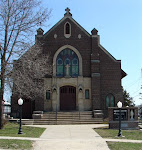Monday, March 21, 2011
Divorce
Hello Father,
There are times I get into discussions with my friends about the Catholic faith. A little while ago, we talked about the vows we take when we get married and how that would tie into "grounds" for divorce. When we said "in good times and in bad", does that mean a person is obligated to stay with their spouse after he/she has been unfaithful in the marriage, or alcoholism, etc. When is it "okay" to file for divorce when there are "bad times"?
--
Kim
Kim,
First of all we need to clarify terms. You speak of grounds for divorce. Divorce is the civil term for the dissolution of marriage. The Church does not recognize divorce as ending a marriage, though we respect it in the the annulment process. Sometimes a person make seek a divorce because the living situation is no longer tenable but they are still in fact married. Secondly, in and of themselves such issues as infidelity or alcoholism are not grounds for an annulment. You are correct to an extent, therefore, when speak of "for better or for worse." The annulment process does not end marriages but examines them in order to ascertain if indeed there was a marriage to begin with. Marriage comes about from the consent that a man and women give to each other. Once a man and a woman freely give their consent it cannot be revoked. What an annulment does is determine if there were any pre-existing conditions which would prevent a marriage from truly occurring even though the parties in question may have gone through a ceremony, been married for years or had children. Sometimes there are conditions in persons upbringing and environment which inhibit their ability to firmly grasp or to commit a marriage. Sometimes people may have intentions that are opposed to what a true marriage is. So while infidelity or alcoholism in themselves may not be a reason for an annulment they may be indicative of a greater issue which limited a person's understanding of or ability to enter into and fulfill the obligations of marriage. If this is indeed the case when the Church grants an annulment it does not end a marriage but rather, after careful investigation, declares that a marriage never existed to begin with
Fr. Pisut
DivorceThere are times I get into discussions with my friends about the Catholic faith. A little while ago, we talked about the vows we take when we get married and how that would tie into "grounds" for divorce. When we said "in good times and in bad", does that mean a person is obligated to stay with their spouse after he/she has been unfaithful in the marriage, or alcoholism, etc. When is it "okay" to file for divorce when there are "bad times"?
--
Kim
Kim,
First of all we need to clarify terms. You speak of grounds for divorce. Divorce is the civil term for the dissolution of marriage. The Church does not recognize divorce as ending a marriage, though we respect it in the the annulment process. Sometimes a person make seek a divorce because the living situation is no longer tenable but they are still in fact married. Secondly, in and of themselves such issues as infidelity or alcoholism are not grounds for an annulment. You are correct to an extent, therefore, when speak of "for better or for worse." The annulment process does not end marriages but examines them in order to ascertain if indeed there was a marriage to begin with. Marriage comes about from the consent that a man and women give to each other. Once a man and a woman freely give their consent it cannot be revoked. What an annulment does is determine if there were any pre-existing conditions which would prevent a marriage from truly occurring even though the parties in question may have gone through a ceremony, been married for years or had children. Sometimes there are conditions in persons upbringing and environment which inhibit their ability to firmly grasp or to commit a marriage. Sometimes people may have intentions that are opposed to what a true marriage is. So while infidelity or alcoholism in themselves may not be a reason for an annulment they may be indicative of a greater issue which limited a person's understanding of or ability to enter into and fulfill the obligations of marriage. If this is indeed the case when the Church grants an annulment it does not end a marriage but rather, after careful investigation, declares that a marriage never existed to begin with
Fr. Pisut




